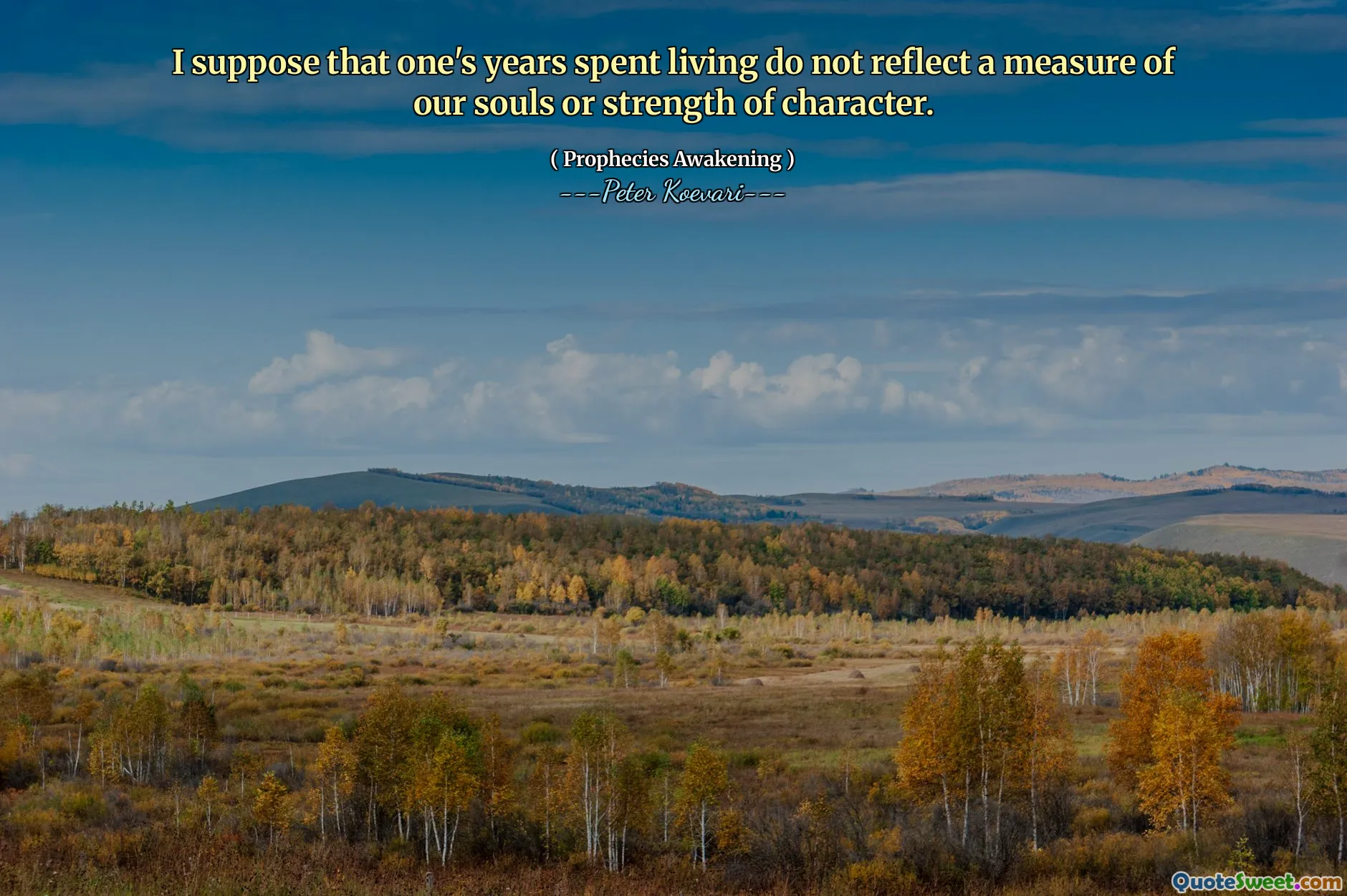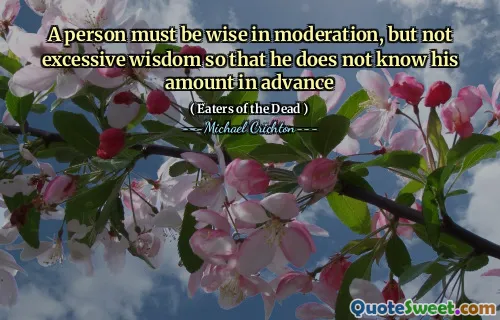
I suppose that one's years spent living do not reflect a measure of our souls or strength of character.
This quote deeply resonates with the notion that the mere passage of time does not equate to true personal growth or inner development. It challenges the common perception that age or years lived inherently mark wisdom or virtue. Instead, it suggests that the quality and essence of our souls and the strength of our character are far more complex and profound than a simple count of years.
In many societies, there is often an implicit assumption that the older someone is, the more experienced or morally mature they must be. However, the quote reminds us that time alone does not guarantee such qualities—these must be earned through life choices, experiences, challenges endured, and how one nurtures their inner being. It emphasizes the importance of intentional living and self-awareness. The 'strength of character' and the depth of the soul arise from introspection, resilience, compassion, and integrity—qualities that one must consciously cultivate.
Furthermore, the quote subtly invites us to reframe how we judge ourselves and others. It promotes a more compassionate and nuanced understanding that not everyone grows in the same pace or manner. Sometimes, youthful individuals possess profound strength of character beyond their years, while others may go through years without such growth. Ultimately, the quote inspires us to focus less on chronological age and more on the deliberate efforts we make to develop as individuals, spiritually and morally.
This perspective aligns with many philosophical and introspective traditions that value inner development over external or temporal measures of life, encouraging us all to seek depth rather than duration.






